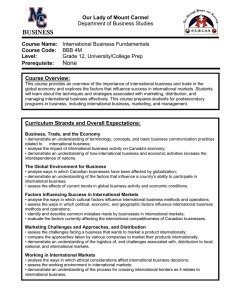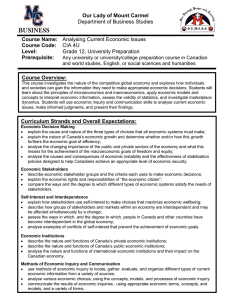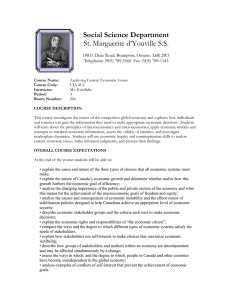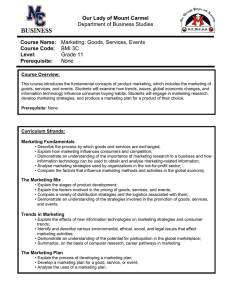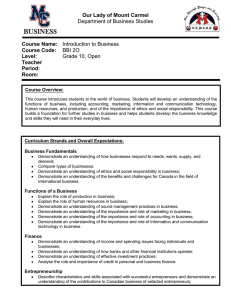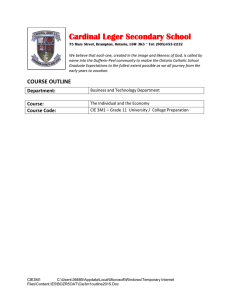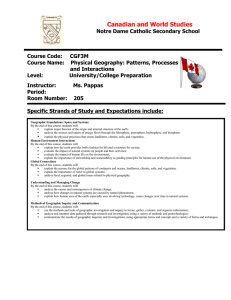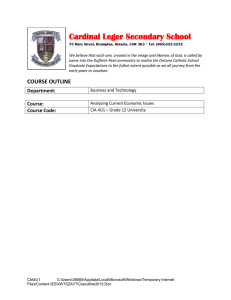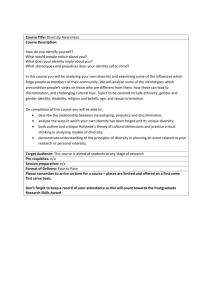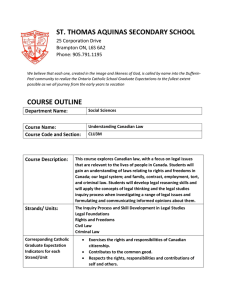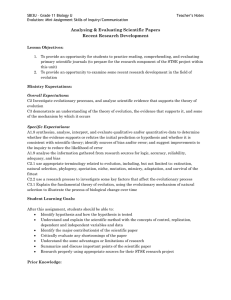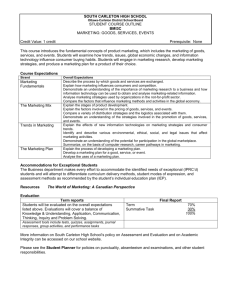Department of Business Studies Grade 11, University/College Prep
advertisement
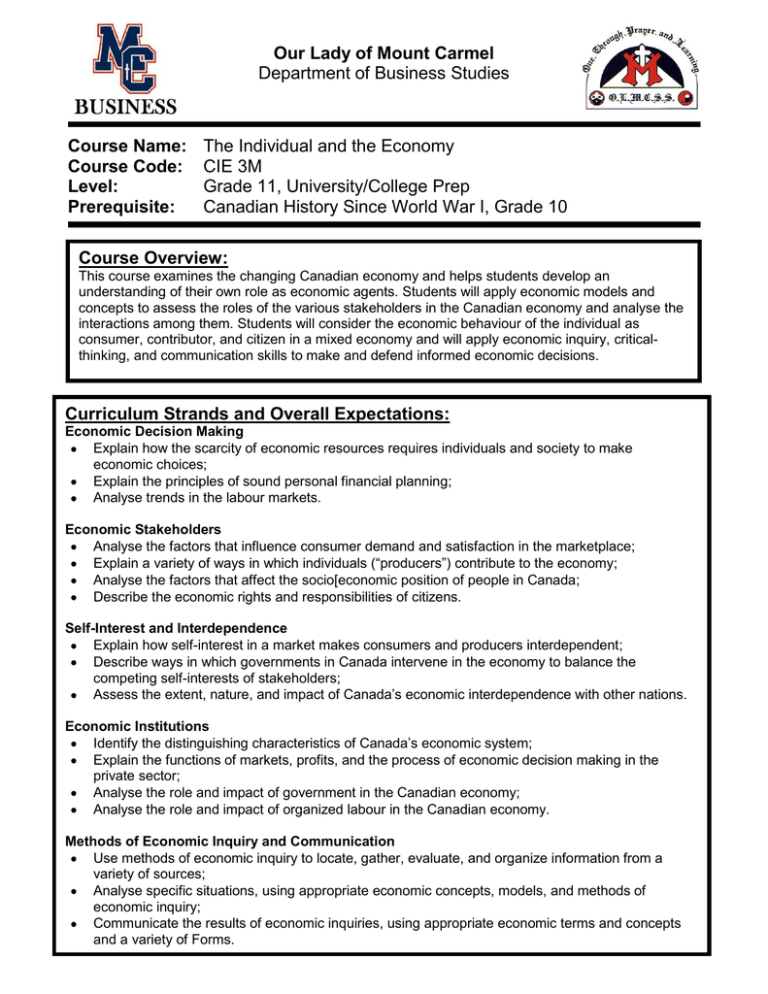
Our Lady of Mount Carmel Department of Business Studies Course Name: Course Code: Level: Prerequisite: The Individual and the Economy CIE 3M Grade 11, University/College Prep Canadian History Since World War I, Grade 10 Course Overview: This course examines the changing Canadian economy and helps students develop an understanding of their own role as economic agents. Students will apply economic models and concepts to assess the roles of the various stakeholders in the Canadian economy and analyse the interactions among them. Students will consider the economic behaviour of the individual as consumer, contributor, and citizen in a mixed economy and will apply economic inquiry, criticalthinking, and communication skills to make and defend informed economic decisions. Curriculum Strands and Overall Expectations: Economic Decision Making Explain how the scarcity of economic resources requires individuals and society to make economic choices; Explain the principles of sound personal financial planning; Analyse trends in the labour markets. Economic Stakeholders Analyse the factors that influence consumer demand and satisfaction in the marketplace; Explain a variety of ways in which individuals (“producers”) contribute to the economy; Analyse the factors that affect the socio[economic position of people in Canada; Describe the economic rights and responsibilities of citizens. Self-Interest and Interdependence Explain how self-interest in a market makes consumers and producers interdependent; Describe ways in which governments in Canada intervene in the economy to balance the competing self-interests of stakeholders; Assess the extent, nature, and impact of Canada’s economic interdependence with other nations. Economic Institutions Identify the distinguishing characteristics of Canada’s economic system; Explain the functions of markets, profits, and the process of economic decision making in the private sector; Analyse the role and impact of government in the Canadian economy; Analyse the role and impact of organized labour in the Canadian economy. Methods of Economic Inquiry and Communication Use methods of economic inquiry to locate, gather, evaluate, and organize information from a variety of sources; Analyse specific situations, using appropriate economic concepts, models, and methods of economic inquiry; Communicate the results of economic inquiries, using appropriate economic terms and concepts and a variety of Forms. Assessment and Evaluation: Students will be assessed & evaluated according to the work produced & skills displayed. Methods of providing feedback may include assessing work in process & evaluating completed assignments, quizzes, tests, co-operative learning activities, research, and presentations. Category Weightings Term (70%): Knowledge & Understanding Thinking Communication Application 30% 20% 20% 30% Final (30%): Culminating Activity Final Exam 10% 20% Achievement Categories: Knowledge/ Understanding Thinking knowledge of facts and terms critical and creative thinking skills (e.g., evaluating business situations; analysing financial data and solving business problems; making decisions) understanding of concepts, principles, and theories understanding of relationships between concepts and ideas inquiry skills (e.g.,generating ideas; formulating questions; planning; selecting strategies and resources; analysing, interpreting, and assessing information; forming conclusions) Communication communication of information and ideas (e.g., through writing, visual and oral presentations) use of language, symbols, and visuals communication for different audiences and purposes (e.g., choice of language and style relevant to business environments) Application application of concepts, skills, and procedures in familiar contexts transfer of concepts, skills, and procedures to new contexts use of equipment, materials, and technology application of technology (e.g. choice of tools and software, ethical use) making connections (e.g. between use of various forms of personal experiences and the communication (e.g., memos, subject, between the subjects and letters, reports) the world outside the school Feedback will also be provided for student learning skills. Skills like working independently, team work, organization, work habits and homework, and initiative are assessed independently student achievement and will be conducted through the use of a rubric indicating specific criteria to be achieved to receive each of the following letter grades: E –Excellent G – Good S – Satisfactory N - Needs Improvement Achievement Levels: Level 1: 50 – 59% Limited knowledge and/or success Level 2: 60 – 69% Some knowledge and/or success Level 3: 70 – 79% Considerable knowledge and/or success Level 4: 80 – 100% Thorough understanding & mastery of skills Please refer to your student agenda for the following policies: Evaluation Attendance Uniform Student Textbook: Understanding Economics: A Contemporary Perspective, Second Edition, Mark Lovewell. Replacement Cost $75 Student: (print name) __________________________ Signature: ____________________________ Parent/Guardian Signature: ___________________________ Date: ____________________________
